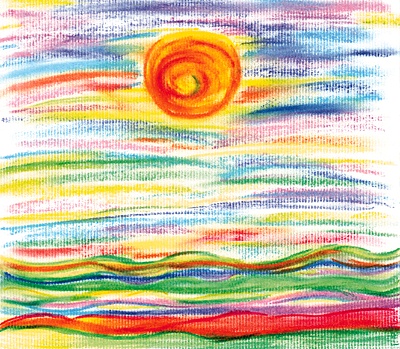All Nonfiction
- Bullying
- Books
- Academic
- Author Interviews
- Celebrity interviews
- College Articles
- College Essays
- Educator of the Year
- Heroes
- Interviews
- Memoir
- Personal Experience
- Sports
- Travel & Culture
All Opinions
- Bullying
- Current Events / Politics
- Discrimination
- Drugs / Alcohol / Smoking
- Entertainment / Celebrities
- Environment
- Love / Relationships
- Movies / Music / TV
- Pop Culture / Trends
- School / College
- Social Issues / Civics
- Spirituality / Religion
- Sports / Hobbies
All Hot Topics
- Bullying
- Community Service
- Environment
- Health
- Letters to the Editor
- Pride & Prejudice
- What Matters
- Back
Summer Guide
- Program Links
- Program Reviews
- Back
College Guide
- College Links
- College Reviews
- College Essays
- College Articles
- Back
A Fierce and Beautiful Hope MAG
Moving from America back to Nigeria was entirely unsettling. Although I am Nigerian-American, I had spent most of my life in America. Going back, I realized for the first time just how many of the things that influence our lives culturally – electricity, television, smart phones, the Internet – come from America. It's a little like living in a house your whole life, then suddenly stepping outside and realizing that 7 billion other people have been staring into it the whole time.
America is king.
But why? I've been thinking a lot about that, and the answer I've finally come up with is a simple, four-letter word. Hope.
Let me explain.
The first thing I noticed immediately about Nigerians is their incredible “dog eat dog” attitude. There is a clearly defined hierarchy in Nigeria. You're below someone who gets to stomp all over you, and you're above someone who you get to stomp all over. It's a different way of living – one characterized by living in constant fear of your superiors and continually pushing down those below you in order to maintain your position in the food chain. It makes the people tough and hard.
Because of this way of living, I've noticed that a most peculiar thing happens. Those on the top tiers of the Nigerian pecking order bulldoze down the bottom layers, giving them a sense of absolute hopelessness. There's this sticky, thick, bogging-down mentality that the underdog never wins. In order to succeed, you have to be the best, and to be the best, you have to be at the top. If you start at the bottom, you'll never get anywhere, because everyone above you is spending so much time making sure you stay below them. It's toxic.
At my Nigerian school, the same mentality exists. The principals yell at the teachers, and in turn the teachers yell at the students, and everyone gets indirectly told that they're not good enough. This fosters a sense of hopelessness in the majority of people. Ninety-nine percent are brainwashed to feel “less than” so that the one percent rise above.
At first, I chalked this up to negative reinforcement: if you tell people that they're not good, it'll inspire them to be better. But soon I realized that although this strange Nigerian way of life does have its perks, overall, it is detrimental to a nation.
Yet in Nigeria – and, from what I can gather, many other parts of the world – this is the norm. People who go to my school have never experienced anything else. They are used to being downtrodden, but I am not.
I'm American in the sense that I have an almost foolhardy sense of hope. Just like other Americans, I love movies where the nerd finally wins over the popular girl, or where the guy in the wheelchair beats the jock. I grew up in a culture that cultivates that golden belief that if you work hard enough, you can reach the top – while my Nigerian counterparts grew up in a culture promoting the belief that if you're not at the top now, you're never going to get there. A message of hopelessness.
There's a reason why America is the superpower of the world. (And yes, I know there will be people who are going to object to that statement, but take a look around you. The media you watch, the music you listen to, the Internet site you're reading this on – they're all American.) America is the superpower of the world because of its hope – its unfailing, unfaltering, unflagging belief – that things get better. Even when Republicans and Democrats are up in arms about every little thing, when health care websites don't work, and when we're up to our noses in debt, we don't give up. We keep fighting.
Sure, we complain and threaten to move to Canada, but we never do. Because Americans, just like Nigerians, have been brainwashed. But, unlike Nigerians, who have been brainwashed to scorn the underdog, Americans have been brainwashed to cheer on the underdog.
We have almost preposterous levels of hope. This brainwashing can be traced throughout American history: Pilgrims who were dying by the dozen but still persevered, Founding Fathers who were fed up with the British and decided to start a revolution that everyone thought they would lose, African-Americans who wanted to drink from the same water fountains as whites, and women who wanted equal footing with men. They all believed, with a fierce spirit, in the power of the underdog. Their key to success – America's key to success – was hope.
A fierce, wild, beautiful hope. A hope that I desperately hope America never loses.

Similar Articles
JOIN THE DISCUSSION
This article has 0 comments.
